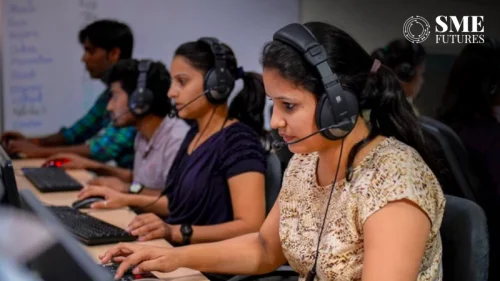In recent years, India has been home to many unicorns. And many Indian start-ups have been favoured by investors.
Having said that, the pandemic has had a minimal to no effect on the pace of funding in the start-up ecosystem, and 2021 was a record year for Indian start-ups, with a whopping US$ 35.2 billion in funding raised, according to a PwC India report. Start-ups received a total of US$ 13.2 billion in funding in 2019 and US$ 10.9 billion in 2020.
But lately, the start-up ecosystem has been on a rollercoaster ride when it comes to funding. Last year, the whole ecosystem was going through a funding dry spell and experts were calling it a funding winter.
Due to the global economic slowdown and the changing regulations, securing funding has become a challenge for many Indian start-ups. The first quarter of 2022 has seen a dip in funding activity. According to PwC, the funding activity in the Indian start-up ecosystem was down by 33 per cent to US$ 24 billion in 2022 as compared to the previous year, though it was nearly double the amount recorded in 2019 or 2020.
Also Read: Unlocking working capital can tackle delayed payments
We delve into the current funding scenario of Indian start-ups and bring forth some insights from the industry stakeholders, including the investors.
Indian start-up funding in the current scenario
According to the Chief Analytical Officer of Acuité Ratings and Research, Suman Chowdhury, the funding scenario for start-ups has seen a deterioration in Q4 of FY23. “As per media reports, private equity and venture capital funding have dropped by 60 per cent on a year-on-year basis in the previous quarter,” he says.
The slowdown in funding activity can be attributed to several factors, including the pandemic, the global economic slowdown, and rising inflation. Chowdhury further says, “Clearly, this is driven by the turbulence in the global environment, the tightening liquidity and the higher interest rates, the banking crisis in the US, and the concerns about a growth slowdown.”
Nirav Choksi, CEO and Co-founder at CredAble says that the concerns about an impending recession and a drop in start-up valuations are holding investors back.
“It is resulting in a record slowdown in funding. With central banks resorting to increasing interest rates, borrowing has become considerably costly, and start-ups with low valuations will be forced to look for options other than equity funding,” he points out.
Many start-ups are finding it difficult to raise funds, and investors are becoming more cautious while investing. The trend is visible across all stages of funding, including the seed, early-stage, and growth-stages of funding.
Keeping this scenario in mind, Ram Shriram, the CEO of a rural fintech start-up, Mahagram suggests staying strong, saying, “One must keep in mind that there is also a high level of funding competition to be considered. To stand out from their competitors, start-ups must have a clear value proposition, and they must be able to execute it effectively.”
However, many stakeholders also view the funding scenario as a positive one.
Rachit Poddar, Co-Founder of IVY Growth Associates says, “Currently, the funding scenario for start-ups in India is quite positive. The pandemic has actually led to a surge in digital adoption, and investors are actively looking for innovative start-ups that can solve real-world problems. We are seeing an increase in the number of angel investors, venture capitalists, and even family offices that are looking to invest in start-ups.”
Challenges hampering international funding
Investors point out that the regulatory environment remains a challenge for the start-ups seeking foreign investment. In 2020, the Indian Government introduced new regulations for foreign direct investment (FDI), which have made it difficult for start-ups to raise funds from foreign investors.
Also Read: SME loan delinquencies to increase for Indian finance companies: Moody’s
Poddar says that often the market understanding of investors also hampers the money from coming in. “One of the main challenges that Indian start-ups face when seeking foreign investment is a lack of understanding of the Indian market by foreign investors. Additionally, regulatory hurdles and the complexity of the Indian tax system can be deterrents for foreign investors,” he elaborates.
In India, start-ups often encounter obstacles when seeking foreign investment due to cultural differences, regulatory hurdles, and unfamiliarity with the local markets.
“However, by building strong relationships with foreign investors, these challenges can be overcome. And the key here is to partner with domestic companies to have an in-depth understanding of the local market and the regulatory climate,” says Shriram from Mahagram.
According to the experts, start-ups need to take care of a few things while considering pitching for foreign investment. “Start-ups need to contend with a host of legal and regulatory regimes when seeking investment from foreign investors. From conducting thorough research to building a powerful business plan and establishing trust with potential investors, entrepreneurs need to follow a systematic process while exploring foreign funding options,” elaborates Choksi.
Impact of global bank collapses
With many international banks collapsing, there has been a negative impact on start-up funding in FY24 and the primary factor behind that is the sharp increase in the interest rates of the developed economies. Investors feel that the failure of banks has adversely impacted Indian start-ups, especially the Y Combinator’s portfolio firms and the cross-border SaaS firms, as SVB was one of the most sought-after financial institutions among Indian start-ups.
“The collapse of a few regional banks in the US and the merger of Credit Suisse with UBS have weakened investor sentiments further, particularly as SVB was largely into the funding of start-ups. With the support received on deposit insurance and an orderly takeover by another bank, the start-up ecosystem is unlikely to incur any immediate losses,” explains Chowdhury from Acuité Ratings and Research.
While Poddar says, “Most of the funding for Indian start-ups comes from foreign investors, and the collapse of global banks could lead to a decrease in foreign investment. This could potentially impact the availability of funding for start-ups and could also increase the cost of capital for start-ups.”
Nonetheless, it is important for start-ups and investors alike to closely monitor global economic trends and be prepared to adjust their strategies accordingly. Choksi suggests that start-ups should limit their exposure to any one bank and diversify their holdings by exploring relations with multiple banks.
Also Read: India-US trade rose by 8% in 2022-23, fell 1.5% with China
Also, the start-ups that are looking to steer themselves through these challenging times, need to find a way to cut down on their financial outlays and have a strong focus on their profit and loss management as well as on their unit economics.
What investors are looking for
Considering the current scenario, investors are now more focused on start-ups with robust business models, sustainable revenue streams, and a clear path to profitability.
According to Choksi from CredAble, Venture Capitalists (VCs) are looking to fund well-established start-ups with credible track records.
The start-ups that have adapted to the changing market conditions and have demonstrated resilience are being viewed favourably by investors, he further opines.
“I strongly feel that now that the season of big-ticket funding rounds is behind us, valuations today look a lot more reasonable than what they were a few years ago. The key factors that most investors are looking for include growth potential and the ability to reduce cash burns,” he points out.
Start-ups need to shift their focus from a growth-oriented outlook to one that is inclined towards slashing spending and protecting profit margins, he adds.
“Funding will be consolidated to established start-ups with concrete customer tractions. The primary focus will be on start-ups that are backed by strong fundamentals and have a clear roadmap to profitability,” he further adds.
Shriram of Mahagram tells us about his thought process before investing, saying, “I look for an open market opportunity, a product or service innovation, a scalable business model, and a clear market opportunity. These factors remain important in the current funding scenario, but there is currently a greater focus on sustainability and profitability than there was in the past.”
While Poddar looks for start-ups that are solving real world problems. “We are seeing a shift towards start-ups that can provide solutions for the post-pandemic world. For example, start-ups in healthcare, ed-tech, and e-commerce are particularly attractive to investors,” he further says.
Is the government doing enough?
Despite the slowdown in funding activity, the Indian start-up ecosystem remains optimistic. The Indian Government has launched a number of initiatives to assist start-ups, including the Start-up India Programme and the Fund of Funds for Start-ups.
Also Read: Interest rates likely to fall to pre-Covid levels in advanced economies: IMF
The government has also made it easier for start-ups to access funding by introducing measures such as the Angel Tax exemption.
But there is still scope for improvement, feel the investment experts.
Choksi recommends that considering the marked slowdown in funding, the government should continue to provide a supportive framework for nurturing innovation and for promoting private investments in start-ups.
Shriram feels that there is still much work to be done to simplify regulations, reduce bureaucratic hurdles, and entice investors to invest in early-stage start-ups. “Furthermore, the government can play a more active role in facilitating start-up’s access to talent, infrastructure, and funding,” he says.
Poddar also adds in, “There is still more that the government can do to support the start-up ecosystem, such as simplifying the regulatory environment and providing more incentives for research and development.”
From facilitating funding to providing financial assistance and tax exemptions, these initiatives by the government have helped in making India one of the fastest-growing start-up ecosystems in the world.
Funding sentiments in 2023
With the Indian start-up ecosystem maturing, corporates are keen to invest in start-ups that can provide them with innovative solutions, technology, and talent. And investors have a positive outlook on the funding scenario for Indian start-ups in the future.
Having said that, the funding outlook may remain negative for the next few quarters until global investment sentiment improves, which has been impacted by tighter global liquidity and the recent banking crisis.
Choksi says that the downward trend in funding is expected to continue in 2023 and it could last from anywhere between 12 to 18 months. “This will be a year of sustenance where founders will need to steer their start-ups towards a long-term value proposition, aim for growth with good metrics, and have a clear path to profitability, and the D2C space will survive this unprecedented crisis,” he says.
While according to Chowdhury, funding will continue to be available for sustainable business models that can demonstrate a clear path to profitability. “One can expect a higher share of funding to come from domestic PE and VC funds in the current fiscal. Fintech start-ups may continue to be a preferred option for investors given the demographic profile of India and the high potential for penetration and growth in financial services here,” he avers.
Shriram from Mahagram predicts, “Sustainability and profitability will be emphasised more in the future. Aside from that, the start-ups that make use of new technologies such as artificial intelligence (AI) and blockchains, are expected to attract more investors in the future.”
Overall, even if funding sentiments are quite bleak at the moment and start-ups are having a difficult time securing funds, not all hope is lost. The Indian start-up ecosystem has demonstrated resilience in the face of adversity, and funding activity is expected to increase in the coming months. Overall, the Indian start-up ecosystem has a bright future, and it is up to the start-ups and the investors to overcome the current obstacles and emerge stronger.











